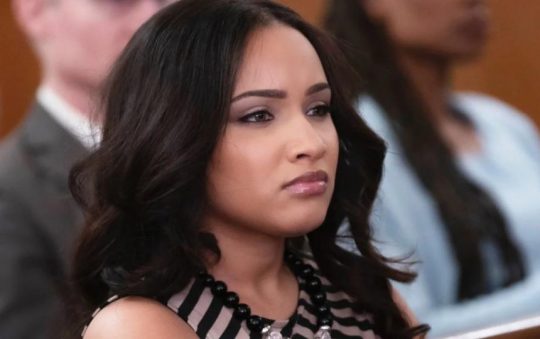
Dr. Darnell Hunt, known for his influential research on race and media, began his professional journey with aspirations in film and journalism.
Today, as UCLA’s interim chancellor, Hunt leads the university through complex times, reflecting on the experiences that have shaped his path to leadership.

“I didn’t start my journey thinking I was going to be an administrator, but as it turns out, my experiences working in the media and later as a sociologist have been useful in my current position,” said Hunt.
Hunt’s academic path began at the University of Southern California, where he studied journalism and film. He later returned to USC as a professor, chairing the sociology department before transitioning to UCLA.

Hunt’s early career included stints at Hill and Knowlton, a public relations firm, and NBC affiliate WRC-TV in Washington, D.C. During this time, he became increasingly aware of the lack of African American representation in the media.
“I would sit in meetings with colleagues, the only African American in the room, listening to depictions of Black communities that I knew weren’t accurate,” said Hunt. “But these depictions were commonly accepted as fact.”
This realization led Hunt to sociology where he could study how race and inequality were constructed through media narratives.
At UCLA, Hunt pursued his Ph.D. in sociology, focusing on race and media. He quickly gained recognition as a scholar for examining how the media reinforces racial stereotypes. Hunt’s research, including the well-known Screening the Los Angeles ‘Riots’ and Channeling Blackness, solidified his reputation as an expert on race and representation in media.
Hunt’s role as sociology chair at USC and his transition back to UCLA marked the beginning of his leadership roles. He became director of the Ralph J. Bunche Center for African American Studies at UCLA where he conducted pivotal research on Black access to higher education and on racial representation in Hollywood.
“Midway through my career as a sociologist, I transitioned from academic studies exploring how the race of audience members shapes the way they perceive media, to producing annual studies on how the inclusion of people of color is actually profitable for Hollywood’s bottom line,” said Hunt.
While directing the Bunche Center, Hunt established and co-authored the annual Hollywood Diversity Report, a significant study that examines diversity in film and television.
“My co-author, Dr. Ana-Christina Ramon, and I spent a year visiting Hollywood studios and networks to gain a better understanding of what type of evidence would make a difference in changing the industry’s long-standing practice of discounting the value of people of color,” stated Hunt.
For more than a decade, the report has been a cornerstone for understanding how diversity in media correlates with profitability, making a strong business case for inclusivity.
As Hunt rose to leadership positions, he eventually served as the first Black chair of UCLA’s sociology department and later as the first Black dean of social sciences.
While later serving as UCLA’s first Black executive vice chancellor and provost, Hunt spearheaded the development of its 2023–28 strategic plan.
Hunt said this comprehensive plan, which reflects the university’s mission for research, teaching, and service, was one of his “proudest achievements.”
“UCLA is an amazing public research university,” said Hunt. “It has been quite an honor to work with an outstanding team of scholars and colleagues to chart the path for this institution’s next great achievements.”
The plan focuses on enhancing academic excellence while ensuring inclusivity and access for students from all backgrounds. Hunt described the strategic plan as essential to securing UCLA’s future as a leading institution, deeply committed to its public service mission.
Now, as interim chancellor, Hunt faces the challenge of guiding UCLA through global and local issues, including managing campus climate considering the Israeli-Palestinian conflict.
Hunt emphasized the importance of maintaining a safe and inclusive campus where open dialogue across ideological divides can flourish.
“We’re living in really difficult times,” said Hunt. “But if we can’t have these tough conversations on a college campus like UCLA, where can we have them?”
Hunt remains dedicated to fostering an environment of academic excellence while ensuring that all students feel supported and valued.
Reflecting on his journey, Hunt’s path from film and journalism to academia underscores his enduring commitment to challenging and reshaping narratives about race and inequality in both media and society.
As UCLA moves forward, his leadership continues to be shaped by the belief that education and diversity are fundamental to a more equitable future.
“The nation is speeding towards becoming majority-minority, and we have an obligation to prepare the next generation to effectively lead in this future,” said Hunt.







